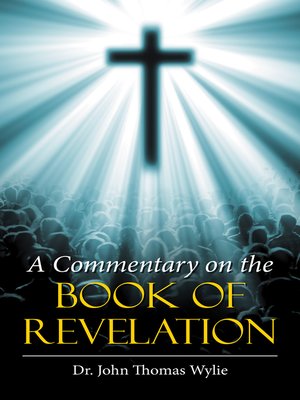
Sign up to save your library
With an OverDrive account, you can save your favorite libraries for at-a-glance information about availability. Find out more about OverDrive accounts.
Find this title in Libby, the library reading app by OverDrive.



Search for a digital library with this title
Title found at these libraries:
| Library Name | Distance |
|---|---|
| Loading... |
Revelation, the last book of the New Testament, describes the struggle between good and evil and the triumph of Christ and his church. It is sometimes called the Apocalypse from its first work in the Gk. Original; it is the chief of all Apocalyptic books. The New Testament contains Apocalyptic passages (e.g., Mark 13, 2 Thessalonians 2), but Revelation, like Daniel in the Old Testament, is given entirely to this type of writing.
W. S. Thompson once stated: The Revelation, the day John wrote it, was all that it is today. It revealed identically the same principles as it does today. Nothing has been added through historical events and incidents which help us to understand it. Nothing has been lost. If we were compelled to look to profane history for records of persons and events which would help us to understand the Revelation, then profane history would be the basis for our understanding, and not the Revelation.
The Scriptures are the greatest and best source for an explanation of the Revelation. There is hardly any symbol, admonition, or principle stated in the Revelation that has not been well presented in all the previous ages. The primary purpose of this publication is to promote studies in the book of Revelation.







